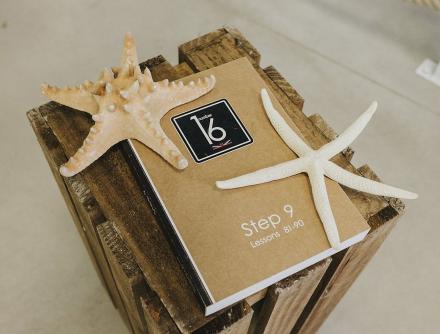
0 conditional:
El “0 conditional” es la estructura más básica de los condicionales. Se utiliza en situaciones reales, cosas que van a pasar. La estructura es la siguiente: IF + PRESENT SIMPLE, PRESENT SIMPLE “If I’m hungry, I eat food.” (Si tengo hambre, como comida.) “If I’m tired, I go to bed.” (Si estoy cansado, me voy a la cama.)First conditional:
El “first conditional” es muy parecida al “0 conditional” pero hay un pequeño cambio. Se utiliza cuando hay una acción y posteriormente hay una consecuencia. La estructura es la siguiente: IF + PRESENT SIMPLE, FUTURE SIMPLE “If I study. I will pass the exam.” (Si estudio, aprobaré el examen.) “If I go to the cinema, I will arrive home late.” (Si voy al cine, llegaré tarde a casa.)Second conditional:
El “second conditional” quizás ya es donde se complica un poquito. Aquí ya no estamos hablando de situaciones reales o probables, sino de situaciones más hipotéticas. La estructura es la siguiente: IF + PAST SIMPLE, WOULD + INFINITIVE “If I won the lottery, I would buy a big house.” (Si ganara la lotería, compraría una casa grande.) “If I were you, I would move to another country.” (Si fuera tú, me mudaría a otro país.)Third conditional:
Por último, tenemos el “third conditional” que es la estructura más compleja. Se utiliza para expresar arrepentimiento por algo que no ocurrió en el pasado. La estructura es la siguiente: IF + PAST PERFECT, WOULD + HAVE + PAST PARTICIPLE “If I had studied harder, I would have became a doctor.” (Si hubiera estudiado más, habría sido médico.) “If I hadn’t played video games all night, I would have woken up earlier.” (Si no hubiera jugado videojuegos toda la noche, me habría despertado más temprano.) En inglés también tenemos condicionales mixtos. Mezclamos las partes de los condicionales 2 y 3 para unir acciones del pasado con el presente, pero esto ya lo miraremos en otro post, step by step! A continuación, vamos a dejar unos ejercicios para que os familiaricéis con los condicionales.EJERCICIO 1
Complete the sentences with the correct tense of the verb in brackets.- a) If I ______(go) to bed early, I will wake up early. (Si me acuesto temprano, me despertaré temprano.)
- b) If I went on holiday, I _______(spend) a lot of money. (Si fuera de vacaciones, gastaría mucho dinero.)
- c) If I ________(eat) a lot of food, I feel tired. (Si como mucha comida, me siento cansado.)
- d) If I hadn’t seen them in concert, I _________(regret) all my life. (Si no los hubiera visto en el concierto, me arrepentiría toda mi vida.)
- e) If I _________(win) the lottery, I ___________(buy) a fast car. (Si gano la lotería, compraré un coche rápido.)
- f) If __________(bring) my camera, I ____________(take) some pictures. (Si llevo mi cámara, tomaré algunas fotos.)
EJERCICIO 2
Match the clauses and say which conditional it is. If I were a celebrity I sleep straight away. If I go to bed We would have won the match. If I had played that match She will not tell her parents. If I speak to her I would spend a lot of money. Solutions:- If I were a celebrity, I would spend a lot of money. (Si fuera famoso, gastaría mucho dinero.)
- Segundo condicional (If + past subjunctive, would + base form)
- If I go to bed, I sleep straight away. (Si me voy a la cama, me duermo de inmediato.)
- Primer condicional (If + present simple, present simple)
- If I had played that match, we would have won the match. (Si hubiera jugado ese partido, habríamos ganado el partido.)
- Tercer condicional (If + past perfect, would + have + past participle)
- If I speak to her, she will not tell her parents. (Si le hablo, ella no le dirá a sus padres.)
- Primer condicional (If + present simple, future simple)
Consejos para estudiar inglés en el extranjero
Descubre los beneficios y opciones para estudiar inglés en el extranjero, con consejos para elegir programas y prepararte para la experiencia
SUMMER EXPERIENCE - CHECKLIST
Revisa el Checklist para la Summer Experience 2024 de Number 16
Poemas cortos en inglés: la manera más divertida de aprender
Explora una selección de poemas cortos en inglés que te ayudarán a mejorar tu vocabulario, pronunciación y comprensión del idioma de forma divertida y creativa. Este artículo incluye algunos de los poemas más populares, como "Twinkle, Twinkle, Little Star" y "Roses are Red", junto con explicaciones del vocabulario clave y su significado. Ejercicios de Práctica: Completa versos de poemas famosos. Traduce poemas para comprender mejor el contexto. Escribe tu propio poema en inglés. Recursos Visuales: Descarga una infografía con los poemas y su significado para reforzar el aprendizaje.




